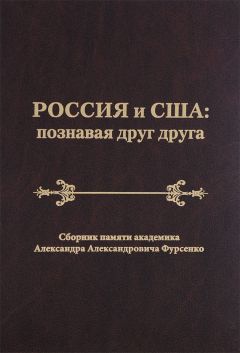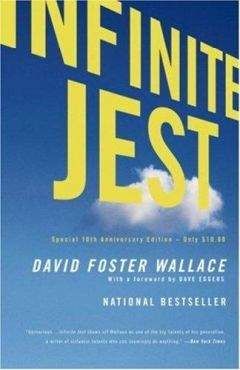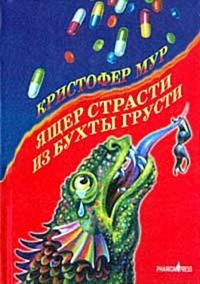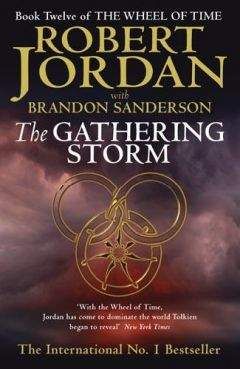Другой важной причиной, которая вызвала к жизни реформаторские тенденции, стали действия России на постсоветском пространстве.[188] Россия снова подтолкнула конгрессменов к серьезному пересмотру методов публичной дипломатии. В итоге был предложен законопроект, который предусматривает создание в 2015 г. нового ведомства – Агентства по международным коммуникациям (U. S. International Communication Agency) – по модели Информационного агентства США периода холодной войны. Это ведомство будет консолидировать все программы публичной дипломатии для выполнения одной задачи – сдерживания идеологий и ценностей нелиберального толка, как это было в период холодной войны.[189]
Публичная дипломатия США родилась как реакция на успехи конкурирующей идеологии в лице советского коммунизма. В период своего становления в годы холодной войны различные программы в области культуры, образования и информации чаще других использовались Вашингтоном для распространения либерализма и американских ценностей в странах Западной Европы, третьего мира и Восточного блока. Исчезновение СССР изменило природу публичной дипломатии. Ее программы стали носить открыто политический характер и превратились в средство участия во внутренней жизни стран постсоветского пространства. В последние годы публичная дипломатия пережила новые изменения, связанные с попытками правительства США найти механизмы прямого влияния на зарубежных граждан. Программы стратегической коммуникации и цифровая дипломатия стали этими механизмами. Кроме этого, активная внешнеполитическая позиция России подтолкнула Вашингтон вернуться к практике публичной дипломатии периода холодной войны, которая до сих пор остается наиболее эффективной с точки зрения обеспечения национальных интересов США.
История России: взгляд из Америки
Gerald Surh. Recent Studies of Antisemitism and anti-Jewish Violence in Eastern Europe, 1881–1914
Jonathan Dekel-Chen, et al., eds., Anti-Jewish Violence. Rethinking the Pogrom in East European History (2011).
Faith Hillis, Children of Rus’. Right Bank Ukraine and the Invention of the Russian Nation (2013).
John D. Klier, Russians, Jews, & the Pogroms of 1881–1882 (2011).
Natan Meir, Kiev: Jewish Metropolis. A History 1859–1914 (2009).
R. Nemes & D. Unowsky, Sites of European Antisemitism in the Age of Mass politics, 1880–1918 (2014).
Yohanan Petrovsky-Shtern, The Golden Age Shtetl. A New History of Jewish Life in East Europe (2014).
This review article focuses on two themes in the period before 1914, anti-Jewish violence and antisemitism. The two themes and their mutual reinforcement reached their high point in the 1881–1914 period, influencing not only the most rapid and consequential transformation of the Jewish population but also the unravelling of the Russian Empire in the same period.
Anti-Jewish violence, most dramatically represented by the pogroms concentrated in 1881–2 and 1903–6, was for Russian Jews the most distinctive, dreaded, and priority-setting events of the period. Russian Jews seem almost always to have lived in liminal fear of discrimination and attack, never more so than in the period after 1881. Violence against Jews, its anticipation and aftermath are encountered in all forms of Russian and Jewish writing, fiction and non-fiction, personal and historical, journalistic and epistolary. Pogroms, their foreboding, and their memory gripped and transformed the lives of Russian Jews in late imperial Russia as no other force did or could do.
The violence mounting in that period has been associated and even identified with the intense and widespread antisemitism prevailing in Imperial Russia, among plebeians and patricians alike. The close relationship between antisemitism and anti-Jewish violence has been so obvious that it has become a historiographic code that has often short-circuited broader inquiry. While pogroms can be and have been seen as themselves instances of antisemitism, their close identification has obscured the fact that there were many persons – perhaps the majority – holding antisemitic views but opposed violence against Jews. On the other hand, many of the participants in the violence were not necessarily persuaded antisemites, but simply looters from deprived subaltern groups or passive witnesses unwilling to intervene on the victims’ behalf. The ready explanation of the violence as the product almost exclusively of ethnic prejudice has relegated other circumstances contributing to the violence to secondary status. This has delayed the formation of a balanced and comprehensive view of the many circumstances and the true complexity that gave rise to violence against Jews. Fortunately, however, most of the studies considered here suggest ideas and contribute directly to getting beyond that distorting bias.
The late John Klier’s detailed study of the pogroms of 1881–1882 is the fullest and most significant recent study that both inter-relates and separates the two themes.[190] This is a major, exhaustively researched opus that revises many common views and beliefs about Russia’s first major pogrom wave and its consequences, including the role of ethnic prejudice. Eschewing descriptions of the ground-level gore, the study unveils the extensive reach and impact of the pogroms on the Tsarist government, Jewish leaders, the Jewish press, the Jewish masses, their mutual interaction, and the pogroms’ influence on emigration and on Jewish organizations abroad.[191] In contrast to the usual polarized views of Russian-Jewish relations in the early years of Alexander III’s reign, Klier’s study reveals a great diversity of opinions among the public, government officials, and the Jews themselves. He reveals the actual alarm in governing circles at the riots and the efforts they made to meet the demands of Jewish leaders. At the same time, he shows the disagreements among the Jewish leaders over who spoke for the entire group and how it should respond to the rioting and to prospects for the future of Jews in Russia.
An early chapter faults explanations that rely on socio-economic determinism to explain pogroms as not explaining their occurrence at certain specific times and not at others. Klier argues against the notion that they were motivated principally by religious rivalry, stressing instead that Jews were seen as “ethnic strangers” in their appearance and occupations, their eating taboos and drinking habits, their calendars and holidays, and their separate places of worship and burial. Going beyond the outdated and discredited view that the Tsarist government directly sponsored and organized pogroms, Klier nonetheless faults the government for its well-known discriminatory measures against Jews as communicating to its peasant subjects that Jews were outside the law and fair targets for abuse.[192] Having established the inter-ethnic nature of anti-Jewish enmity, he finds a suggestive parallel between Russia’s pogroms and Donald Horowitz’s “deadly ethnic riot”.[193]
In keeping with that perspective, Klier deepens our understanding of pogroms by drawing attention to their interactive nature. In addition to Jewish resentment of gentile disrespect for Jewish customs, for instance, he also shows that Christians had their own ethnically-based grievances, calling on Jews not to trade during Church services and not work on Christian feast days. Others petitioned the government to stop Jews from calling them “drunkards, scum, and rascals”.[194] On the other hand, he suggests greater complexity in the origins of Jewish-gentile violence: “Every pogrom where there was serious loss of life was marked either by the use of firearms by Jews or by the rumor that they were shooting into crowds… Organized Jewish defense, as occurred at Balta, was viewed by authorities and populace alike as provocative and as likely to raise the level of violence”.[195] Such detail reveals some of the inter-subjectivity of Jewish-gentile relations, the grounds of a mutual enmity that gave rise to occasional violent overreactions, and the background to the mass hysteria that over-swept much of the Pale in 1881–2.
However, the book’s central drama is not enacted on the streets between Jews and gentiles, but in the three-way interaction among the Russian government, leading representatives of Jews in the capital, and Jewish spokesmen for separate provincial Jewish communities. Beyond the anti-Jewish enmity of Interior Minister Count N. P. Ignatiev and his supporters, Klier documents and describes the efforts of other upper-level officials to meet with and hear out those representatives. He reveals the close and fruitful relationship between Tsarist dignitaries and the Jewish elite in St. Petersburg, headed by Baron Horace Gintsburg, suggesting that its successes in working with the government to advance the Jewish cause has not received the attention it deserves. The approach of Gintsburg and his Circle relied on the need for Jews to show their loyalty to Russia, the main obstacle to which, besides Ignatiev’s considerable negative influence, was the response to the pogroms that called for Jews to emigrate, voiced by community leaders in the Pale of Settlement, where Jewish vulnerability was most keenly felt.
Chapter 10, which describes the history of the Gintsburg Circle’s successes and its struggle with the emigration panic, is entitled “Politics without Prophecy”, a friendly swipe at Jonathan Frankel’s stress on the seminal role of the Jewish intelligentsia in setting the political agenda for Russian Jewry and its vilification of the Gintsburg Circle.[196] Klier’s study supplements the accounts of 1881–2 told by others, including Frankel, by shifting focus from the defiance of Populist and emigrationist Jews to the insider politicking of their elite leaders, embodied by the Gintsburg Circle. Klier provides “inside stories” previously not widely known, revising the usual version of the turn toward reaction in the government’s policy toward Jews. And he has brought the Jews themselves into the story as active participants rather than passive recipients of an unrelenting antisemitism allegedly pervading Alexander III’ regime, by describing and documenting the disagreements in their own ranks as well as the positive reception their leaders received in higher governing circles.
That being the principal contribution of Klier’s study, he has not neglected other dimensions of the Russian upheaval of the early 1880s. The genuinely popular Jewish response to the pogroms is revealed not only in the panicky enthusiasm for emigration, but by the sudden surge in attendance of selihot (repentance prayer) ceremonies responding to the pogroms and held in numerous synagogues. Besides connecting Jewish communities with a familiar tradition, the services also discussed the politics of the pogroms and groups not normally attending synagogue, such as students, swelled attendance at the selihot’s. Parallel to the mixed and complex views he describes between governing circles and Jewish leaders. Klier also reveals the diversity of views within Russian society, surveying merchants, journalists, and radicals, carefully distinguishing differences among socialists, Narodovol’tsy, and Chernoperedel’tsy, while noting that, with few exceptions, the majority of Populists in the early 1880s looked favorably on the pogroms as the harbingers of peasant revolution. Klier’s version of the 1881–2 pogroms, besides being a series of malevolent attacks on Jews, become a vast social and political upheaval, focused on the Jews but also revealing a broad synchronic portrait of Russian government and society moving in response to them.
In keeping with the documentation in his earlier studies[197] of the government’s sincere efforts to assimilate Jews to the state’s own order and needs, Klier distinguishes in the present book between Ignatiev’s hostility and the continuing willingness to accommodate Jewish needs by other top officials, including Alexander III, who deplored the pogroms and met with Jewish representatives to discuss responses to them. Indeed, in this view, Ignatiev stands out as the revisionist and extremist,[198] while the personal antisemitism of many officials is shown to have been tempered by their commitment to maintaining public order and Jewish good will.
Be that as it may, the fact remains that in the end Ignatiev “and his minions” had their way in that the May Laws of 1882 (placing additional restrictions on Jewish mobility) were adopted, meetings and contacts between government and Jewish leaders notwithstanding. Although the Laws could have been even more onerous without the input of the Jewish leadership, as Klier suggests, Jewish disabilities were increased, not relaxed, and violent anti-semites took greater encouragement in the ensuing period from the government’s apparent support. How and why that happened despite Ignatiev’s replacement by the more accommodating Count Dmitrii Tolstoi is not entirely clear. What did Alexander III say in those meetings with Jewish leaders? How did government bureaucrats, despite Ignatiev’s departure, manage to turn the tragedy of the pogroms to the Jews’ disadvantage? It’s clear that “Ignatiev-ism” in governing circles outlived Ignatiev’s own departure. Given the interactive nature of pogrom politics in 1881–82, was this outcome the result of over-reaction to the pogroms by the Jewish masses and their journalist spokesmen, or of the “disloyalty” of those who turned to emigration and socialism? Or was it due to the institutional strength of an anti-Jewish bias that prevailed over the reservations and mixed views of key government figures? All the questions Klier raises have not been answered, yet his study has elevated the debate by disproving myths about the pogroms that have been repeated in textbook accounts of 1881–2 events, presenting a more authentic version of what transpired in higher government circles and among Jewish leaders, obliging future studies to rise to a higher and more nuanced level.





![Rick Page - Make Winning a Habit [с таблицами]](https://cdn.my-library.info/books/no-image-mybooks-club.jpg)